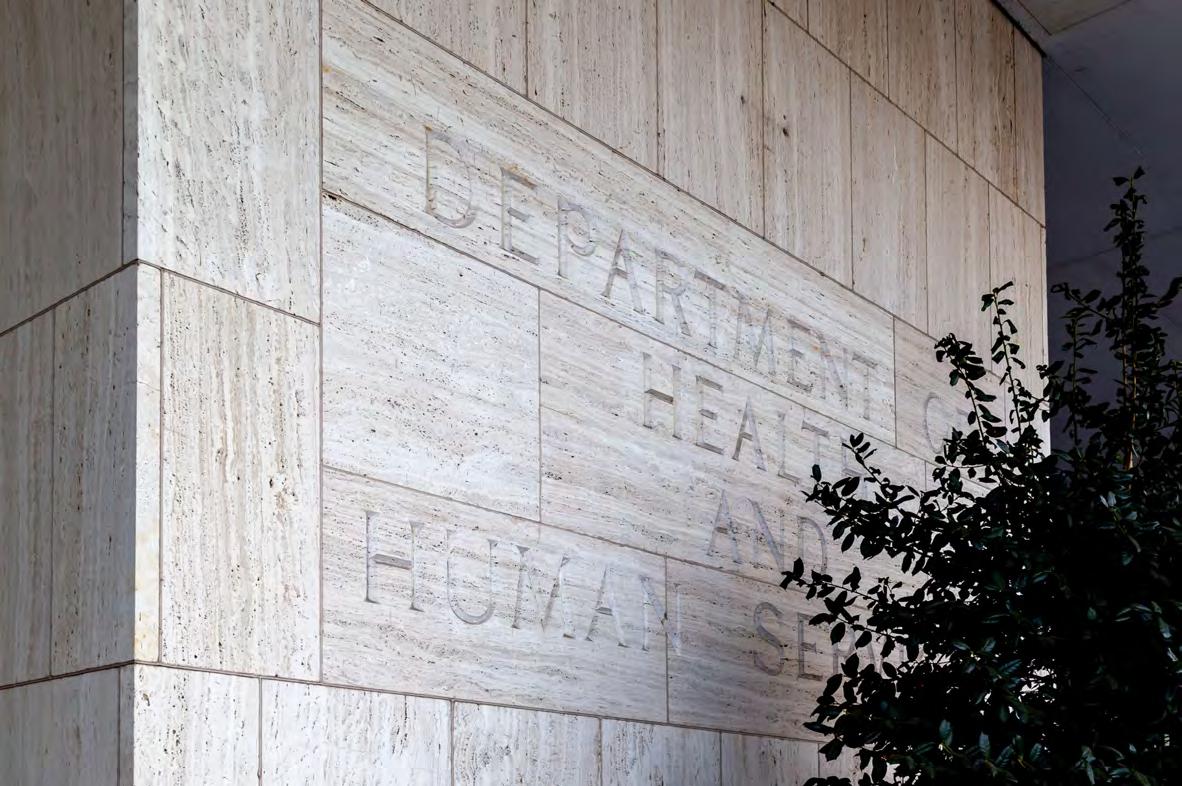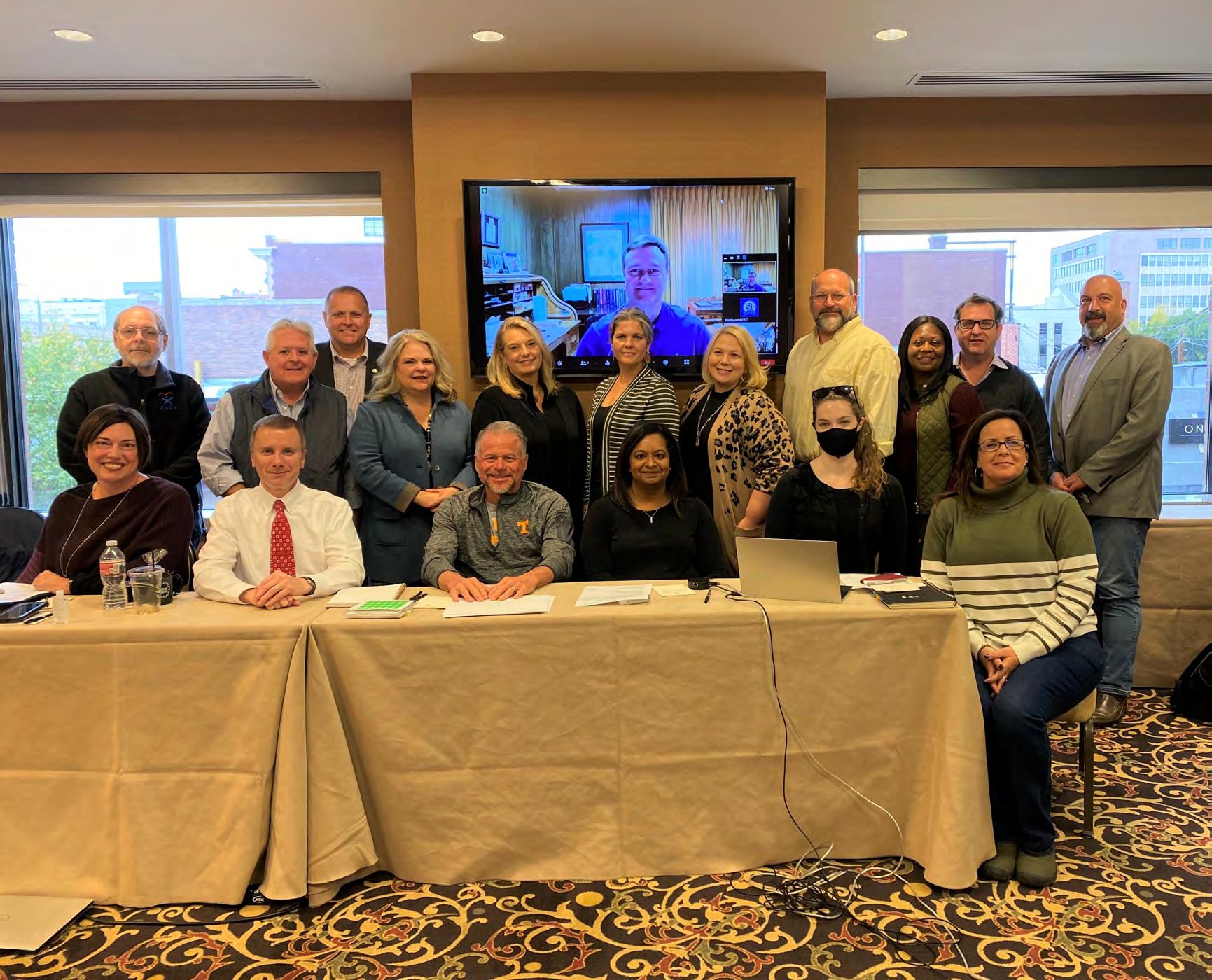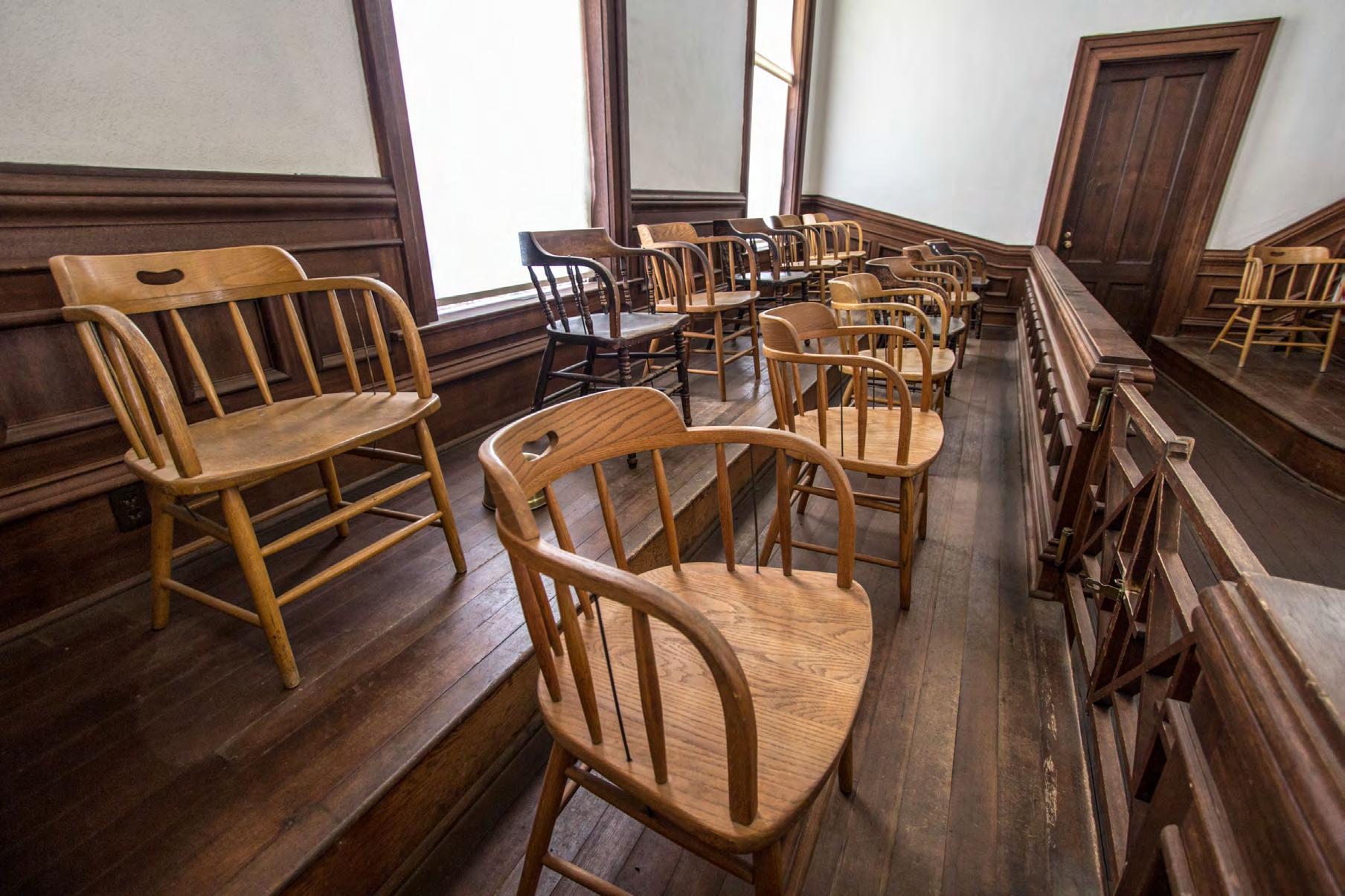



There is immense power when a group of people with similar interests gets together to work toward the same goals.





There is immense power when a group of people with similar interests gets together to work toward the same goals.
On behalf of the Rural Justice Collaborative (RJC), we are pleased to provide you with an update on our 2021 achievements and an overview of our 2022-2023 strategic priorities.
The RJC was formed in February 2021 to support rural justice practitioners and their partners in behavioral health and public health. This effort was born out of the recognition that rural justice stakeholders face many of the same challenges as urban communities (e.g., transportation and housing) but often have fewer resources and larger geographic areas of responsibility. More importantly, rural communities possess unique strengths, and the RJC is well-positioned to showcase these strengths and highlight the cross-sector collaboration that is a hallmark of rural justice systems.
The early work of the RJC focused on developing the organizational structure of the RJC and establishing an Advisory Council composed of 19 rural practitioners who provide the vision and strategic direction for the work. In the summer of 2021, the RJC launched the Online Resource Center housed at www.ruraljusticecollaborative.org, began

distributing the monthly RJC Digest newsletter, and released the call for RJC Innovation Site nominations. Through the innovation sites, we highlight effective cross-sector partnerships, distill the key components of successful rural initiatives, and share them with other rural communities.
We look forward to new partnerships in the coming year and expanding the RJC’s ability to reach rural justice practitioners throughout the country. We extend our sincere gratitude for the important role the State Justice Institute plays in supporting the RJC. We would also like to acknowledge our new work sponsored by the Bureau of Justice Assistance and the Centers for Disease Control and Prevention in 2022.
Best wishes,
 Kristina Bryant Co-Director
Kristina Bryant Co-Director
 Tara Kunkel Co-Director
Tara Kunkel Co-Director



There are a variety of federal definitions describing "rural." The various definitions encompass key aspects of rurality, including low population density, geographic isolation, small population size, and a way of life that reflects history, economy, or culture fundamentally different from cities. Urban and rural communities face many of the same challenges – economic concerns and a need for expanded behavioral health services – but the uniqueness of rural settings shapes how rural justice initiatives are implemented.

Rural communities face unique challenges that impact their ability to deliver fair and equitable justice. Despite these challenges, rural communities rely on their many strengths to address the needs of their residents. In 2021, the National Center for State Courts, in partnership with Rulo Strategies, launched the Rural Justice Collaborative (RJC) to showcase the strengths of rural communities and highlight the crosssector collaboration that is a hallmark of rural justice systems. These strengths include strong professional networks, deep ties to the communities they serve, resiliency, and ingenuity.
The RJC focuses on the following seven areas:
Increasing access to behavioral health treatment
Reducing victimization
Facilitating employment and educational opportunities
Eliminating barriers of access to justice
Reducing incarceration and recidivism
Facilitating re-entry
Reducing the number of children in foster care due to familial substance use

virtually on five occasions in 2021 and held an in-person planning session in October 2021.

Dr. Brandy Harrell
Director ofBehavioral Health
Lisa Macon Harrison, MPH Health Director Michelle Hart, MPA Deputy Chief Probation Officer, Retired Molly Hicken Attorney The Hon. Robert Hofmann Judge The Hon. Mary Jane Knisely Judge James G. McDermott Chief Public Defender The Hon. Donna Mowrer Judge The Hon. Lakshmi Reddy Judge The Hon. Michelle Rick Judge The Hon. David W. Ruoff Judge The Hon. Jonathan Shamis Judge
In 2021, the RJC collaborated with the following organizations to support education and outreach:
Conference of Chief Justices/Conference of State Court Administrator's Behavioral Health Committee
National Judicial Task Force to Examine State Courts' Response to Mental Illness – Education, Partnerships, and Implementation Work Group Bureau of Justice Assistance and the Centers for Disease Control and Prevention Rural Responses to the Opioid Epidemic sites

Housing Assistance Council
Vera Institute of Justice
The RJC also partnered with the Deason Criminal Justice Reform Center to sponsor a RJC Fellow. In 2021, the RJC Fellow, Kristin Meeks, was central to coordinating the selection of the inaugural RJC Innovation Sites.

The RJC Innovation Initiative showcases work in rural communities that enhances rural justice systems and celebrates the people who make these efforts possible. Through a rolling nomination process, the RJC's Advisory Council will select approximately 25 rural innovation sites over the course of two years.
The RJC Innovation Sites are the foundation of the RJC's peer-to-peer training and technical assistance program designed to build rural justice systems' capacity. Rural communities can access the resources and information needed to replicate components of these initiatives through case studies, webinars, and podcasts hosted on RJC’s Online Resource Center. The RJC Digest is also an important source for information about resources and training opportunities. Subscribe to the monthly newsletter here.
South Carolina Victim Assistance Network: Reaching Rural Initiative
South Carolina
Lazarus Recovery Services North Carolina
The Center for Empowering Victims of Gender-based Violence
Kansas
The Rural Attorney Recruitment Program South Dakota

The Rural Incubator Project for Lawyers Montana
Texas Dispute Resolution System: Rural Mediation Texas
Public Defender Corporation Recovery Coach Project West Virginia


Scott County Coordinated Community Response (CCR) Team

Tennessee
Family Accountability and Recovery Court North Carolina
The first nine RJC Innovation Sites were announced in October 2021.
resources were available to pursue them.

Support cross-sector collaboration and understanding among and between rural justice practitioners and other stakeholders and partners, including public health and behavioral health.
Advance the exchange of ideas and information between rural justice practitioners and increase the understanding of the unique needs of rural justice systems.

Select additional RJC Innovation Sites.
Develop structured opportunities for rural justice practitioners to engage with the RJC Innovation Sites and learn from their experiences.
Advertise the innovation site nomination process and learning opportunities through strategic partners, the RJC Digest, the RJC Online Resource Center, and social media.
Produce videos about the RJC and select innovation sites. Support peer-to-peer exchanges between rural communities and select RJC Innovation Sites.
Host up to four lunch and learn opportunities featuring select innovation sites.
Produce webinars and/or podcasts featuring the RJC Innovation Sites or select speakers.

Support cross-sector collaboration and understanding among and between rural justice practitioners and primary stakeholders and partners, including public health and behavioral health.

Develop strategic partnerships to support the RJC's areas of focus.
Identify opportunities to collaborate with existing federal training and technical assistance providers and other national organizations supporting rural work to coordinate and integrate training and technical assistance services, co-author publications, and co-sponsor workshops, seminars, and conferences.
Establish a RJC Leadership Institute.
Build a robust network of diverse, knowledgeable, skilled, and connected local leaders.


Develop co-branded publications between the RJC and relevant training and technical assistance providers.
Co-sponsor regional or national training for rural justice practitioners.
Teach the skills necessary to support collaborations between justice stakeholders and their behavioral health, public health, and public safety partners.
Advance the exchange of ideas and information between rural justice practitioners and increase the understanding of the unique needs of rural justice systems.

Identify needs and gaps to enhance rural justice systems.
Develop a research agenda specific to rural justice systems centered on rural justice practitioners' priorities.
Seek out opportunities for the RJC to be represented on regional or national workgroups relevant to the RJC's areas of focus.
Convene rural justice practitioners to identify training and technical assistance needs and funding gaps.
Convene rural justice practitioners and researchers to develop priorities for rural justice research.
Identify opportunities to connect researchers and rural justice practitioners interested in being evaluated.

Provide scholarships to support rural justice practitioner attendance at national conferences relevant to the RJC's focus areas.
Communicate RJC priorities to federal funders and other stakeholders.
The National Center for State Courts, headquartered in Williamsburg, Virginia, is a non-profit court organization dedicated to improving the administration of justice by providing leadership and service to the state courts. Founded in 1971 by the Conference of Chief Justices and Chief Justice of the United States Warren E. Burger, NCSC provides education, training, technology, management, and research services to state courts. Learn more at ncsc.org.
Rulo Strategies is a woman-owned business focused on supporting and evaluating initiatives to foster collaboration between diverse stakeholders with distinct but complementary missions. Founder Tara Kunkel served as a Senior Policy Advisor to the U.S. Department of Justice, Bureau of Justice Assistance (BJA), where she advised on the policy direction of all opioid-related and overdose prevention initiatives. Learn more at rulostrategies.com.
The State Justice Institute (SJI) was established by federal law in 1984 to award grants to improve the quality of justice in state courts and foster innovative, efficient solutions to common issues faced by all courts. SJI is a non-profit corporation governed by an 11-member Board of Directors appointed by the President and confirmed by the Senate. Learn more at sji.gov.

